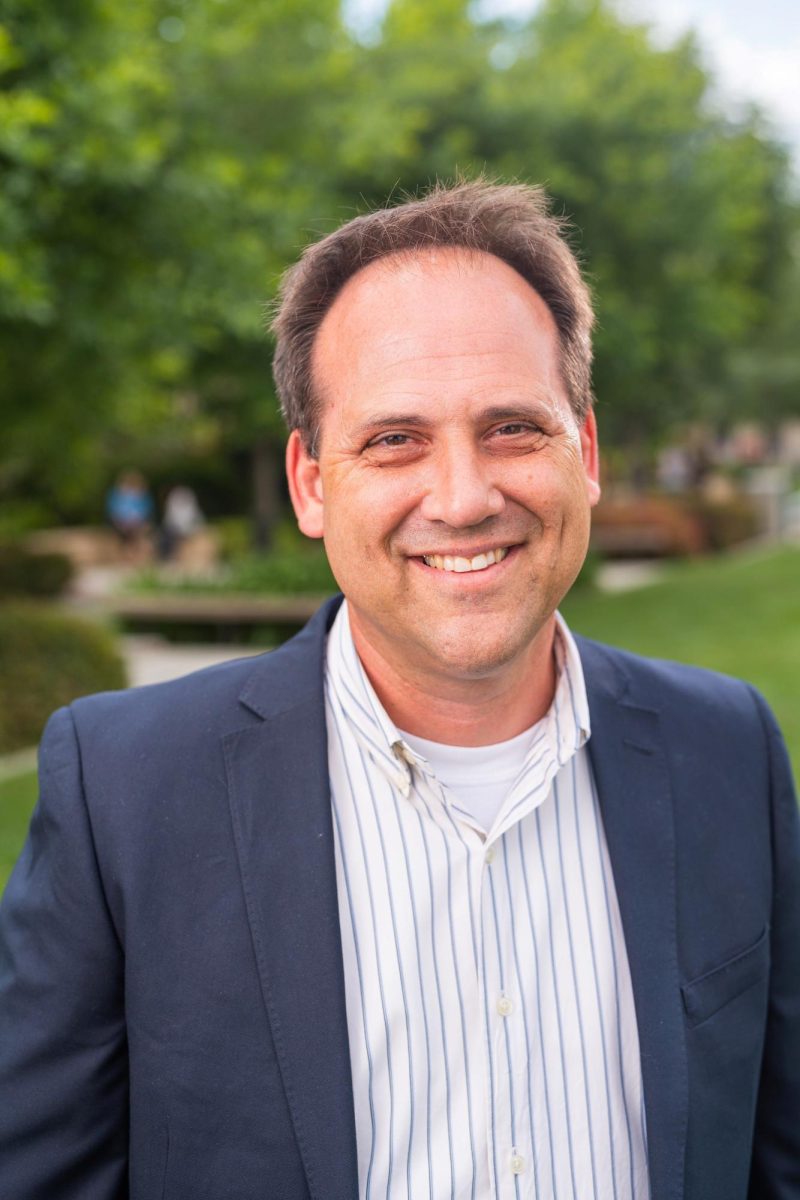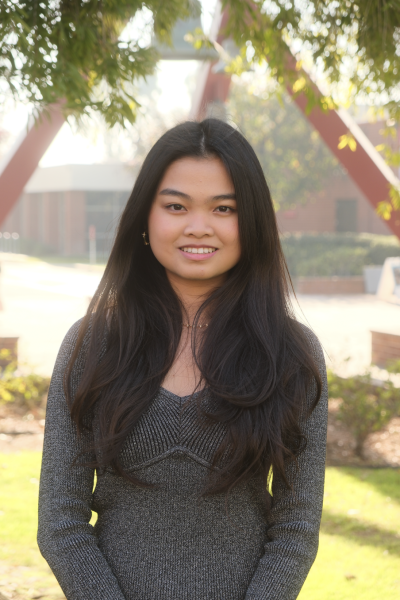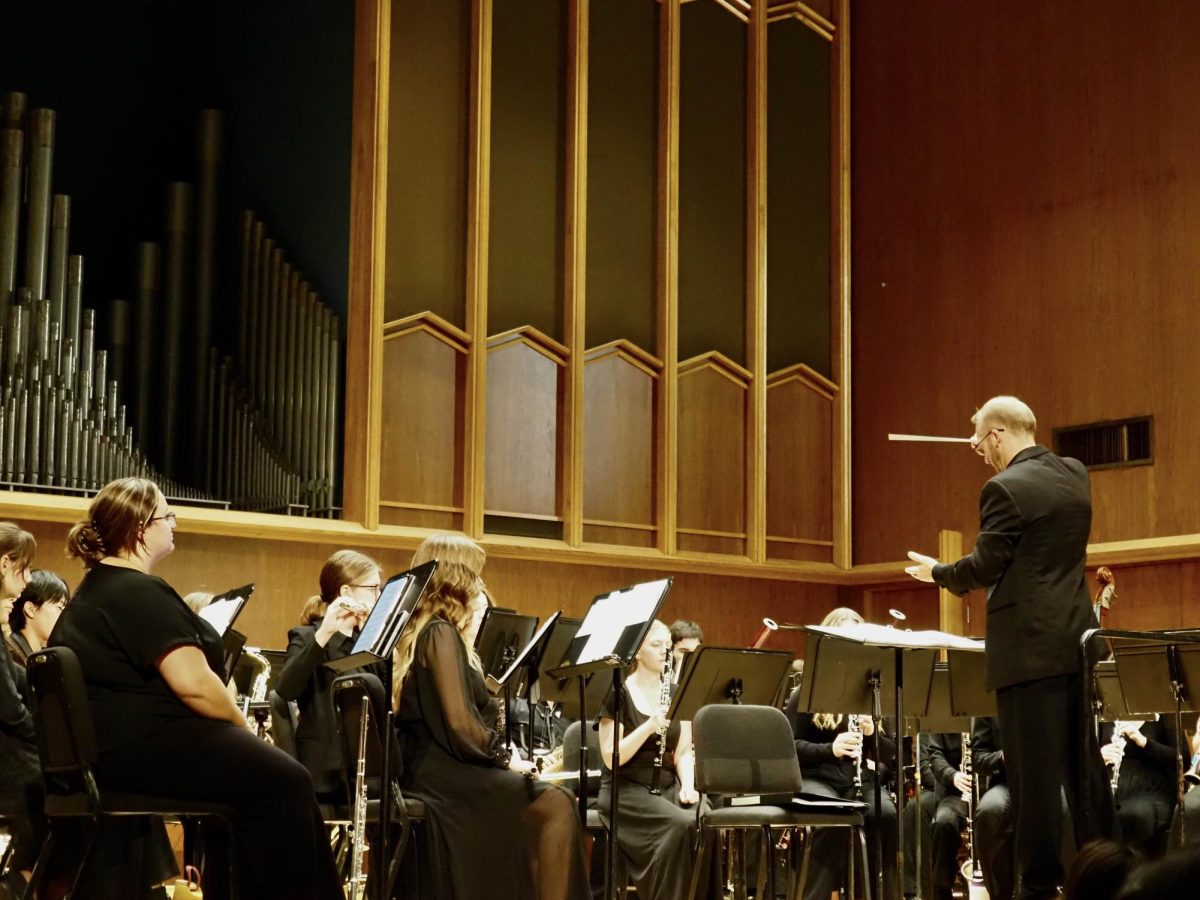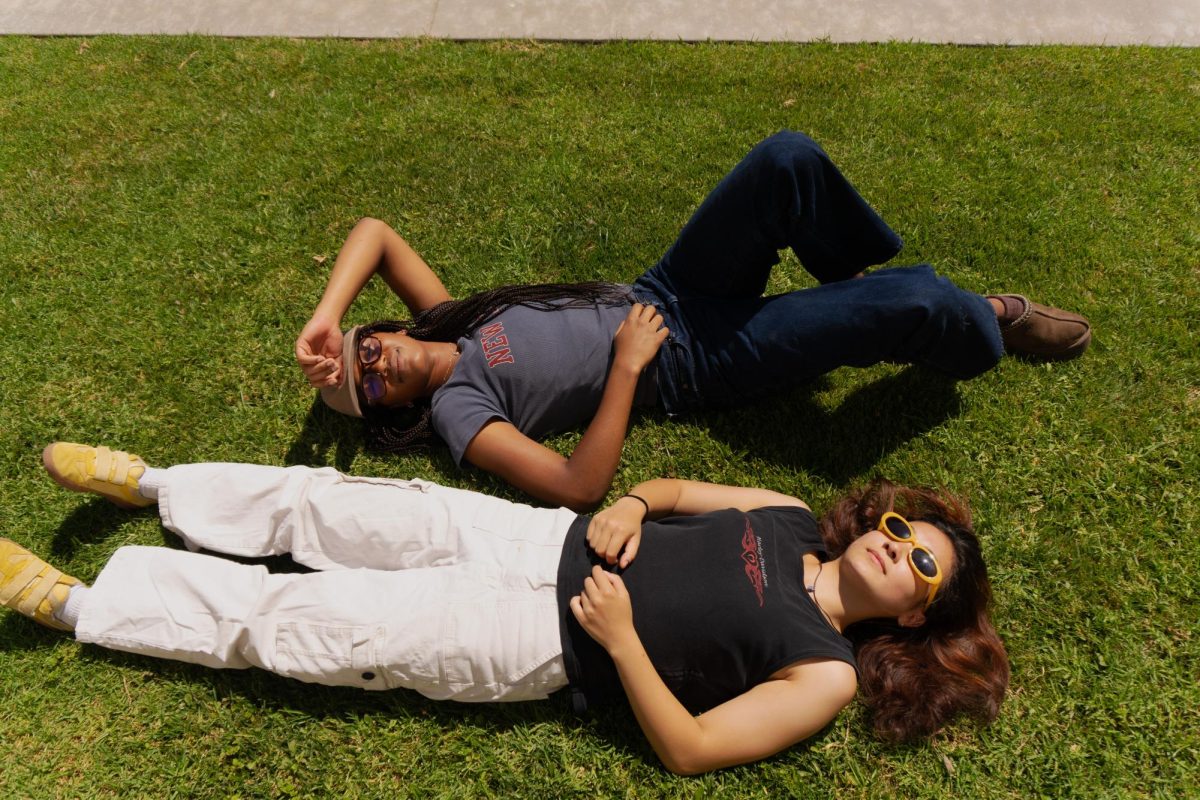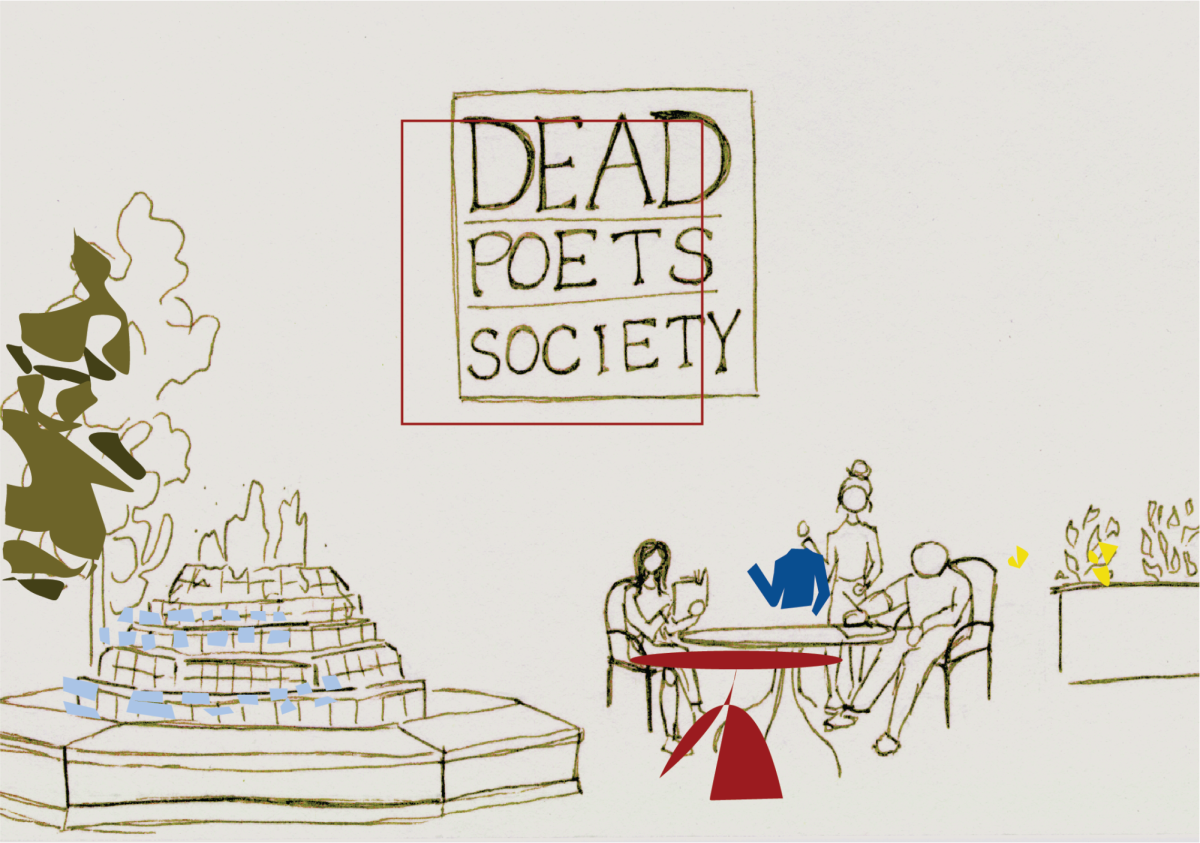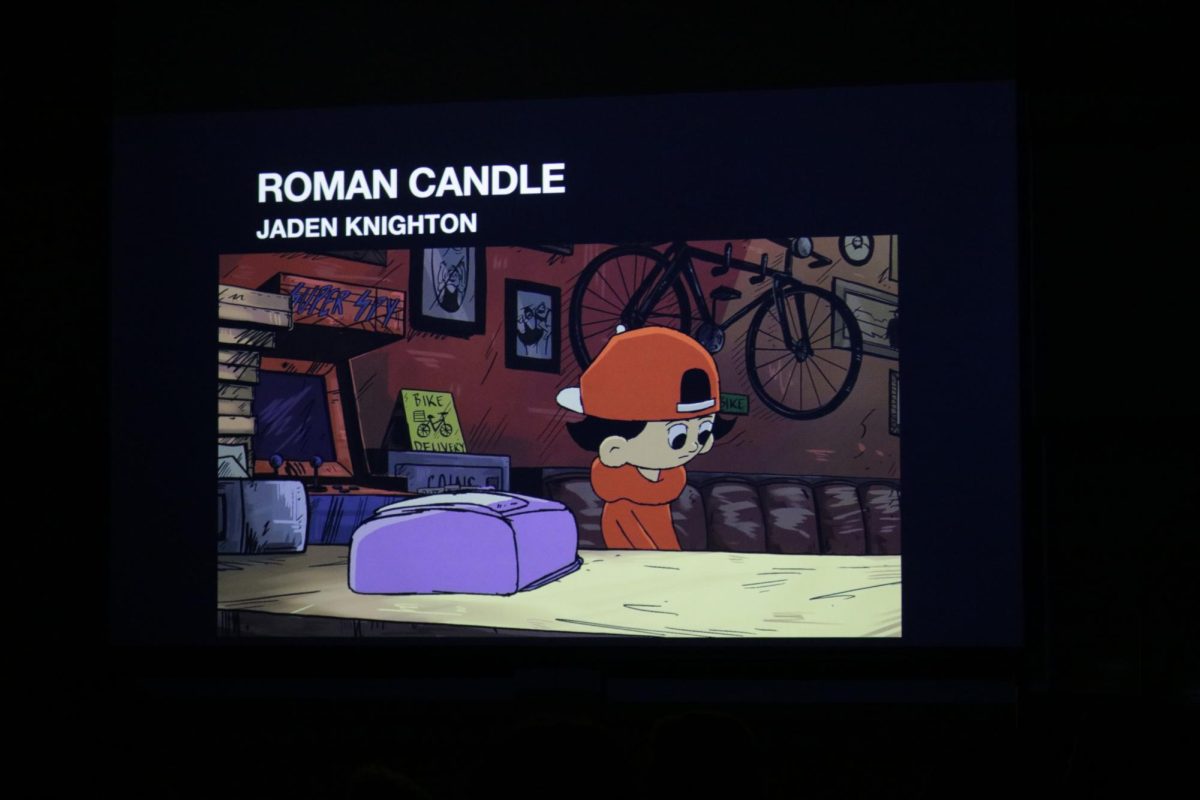“Between the Pages” is a Q-and-A series that explores one’s life through books that have shaped and influenced them. Books affect the forming of souls, and together these souls make up our community. Through both ancient and contemporary writings, we unveil the wisdom that underlies our community.
Darin Lenz is a professor and chair of the History Department, specializing in the history of Christianity from the Reformation era through the twentieth century. It was not until his mission trip to India, where he taught ministry students the history of Christianity in a rural Bible college. that he decided to pursue the study of Church history. Lenz completed his PhD in History of Christianity at Kansas State University. You can look at his articles, dissertation and research on his website.
Disclaimer: The answers have been edited for clarity and conciseness without altering the original meaning.
What book(s) are you currently reading, and what drew you to it?
Darin Lenz: I am currently reading “Bright the Vision: Public School Missions from the Victorian Age.” As a historian of Christianity in 19th and 20th century Britain, I was asked to review the book for an academic journal in Great Britain. The book is a fascinating look at Christian missions that tried to get the financially well-off students who attended elite schools to help the poor.
Is there a book you find yourself rereading regularly? Why does it resonate with you? What is your favorite fiction book, and what do you love about it?
Lenz: I have a couple of books that qualify as my favorites. Viktor Frankl’s “Man’s Search for Meaning” and “Mere Christianity” by C. S. Lewis. Both books resonate with me for various reasons. Frankl’s account of his experience as a Jew in the Nazi concentration camps shows the best of what humans are able to do to transcend the horrible circumstances that they find themselves faced with in life. Although living through the most barbaric atrocity in modern world history, Frankl focused on the internal choices that we make as humans to deal with circumstances beyond our control. He says the final freedom we have is to choose our attitude even when everything else materially and physically is taken from us. C. S. Lewis, on the other hand, presents a vision of Christianity that transcends the differences of doctrine and practice that often divide Christians and points to why faith in God is reasonable and why Christian morality and ethics matter. The book is a compilation of his broadcast talks from World War II for the BBC and reflects an effort to make the basics of the Christian faith accessible to ordinary Britons who may have been struggling with making sense of God’s importance in a war-torn world. These books came out of the darkest moment in modern history and, I think, can help us overcome whatever we think is challenging for us in our lives.
What are some essential books you recommend for students interested in the integration of faith and history?
Lenz: Robert Eric Frykenberg’s “History and Belief: The Foundations of Historical Understanding,” David Bebbington’s “Patterns in History: A Christian Perspective on Historical Thought” and Christopher Dawson’s “Dynamics of World History” are important books for contemplating how Christianity and history can be integrated. History, like all academic disciplines, requires conscious integration and there are very few historians engaged in this type of work today as the discipline has become shaped more by politics and intellectual fads that reject Christianity and the insights of religious belief in general.
What books shaped you the most during your college years?
Lenz: The two novels that shaped me most in my college years are Thomas Hardy’s “Jude the Obscure” and F. Scott Fitzgerald’s “This Side of Paradise.” Each book deals with the promise of what intellectual life and university embodies, along with relationship troubles and financial difficulties that combine to hinder bright minds from realizing their full potential. In various ways, the books address the emptiness, frustration and nihilism that comes from youthful ambition void of Christ.
What book did you wish you had read earlier in life?
Lenz: I did not read this book until I was a dozen or so years into my career as a professor, but John Edward Williams’ novel “Stoner” is a powerful critique of American academic life. The book surveys the emptiness of being a college professor when a person’s life is simply focused on establishing a career for the sake of a career. I find the book powerful because it reminded me of many professors and aspiring academics I knew from my own educational experiences over the years. Ultimately, the book is a haunting account of what the life of the mind is like in a public university setting when Christ is absent.
What experience influenced your decision to pursue your academic discipline?
Lenz: As a public university student, I was drawn to the works of C. S. Lewis because I did not have any Christian models to follow, and I knew that he was both a Christian and a scholar at Oxford and later Cambridge. So, I read Lewis to fill the gaps in my own experience in the classroom and to have a Christian intellectual role model.
My love of history began in church as a child because my pastor was a tank commander in World War II and told stories about fighting the Nazis. From the vantage point of a small boy listening to him in the pew, somehow the battlefields of Europe managed to provide the perfect sermon illustration for how to live out the Christian life. It’s a war, a dangerous war, and we should be very careful because we are always in the thick of battle. This love for history and Christianity bloomed later in my life after I served four years on active duty in the U.S. Marines and then finished my college degree in my mid-twenties.
The reason I became a historian of Christianity was because of a mission trip to India following my graduation from college. On that trip, I was asked to teach ministry students the history of Christianity in a rural Bible college. I was immediately drawn to the subject even though I had never had a single course in the history of Christianity in my own education at state universities and community colleges. I was so profoundly moved by this experience that I gave up my plans to become a high school teacher when I returned to the U.S. I went on to study the history of Christianity at a theological seminary and then completed a PhD in History at Kansas State University under the direction of the late Robert D. Linder, a leading evangelical historian who became a great friend and mentor.
What advice would you give to students who are looking to improve their writing?
Lenz: Read more! Reading lots of different authors is the only way to improve your writing. I would also read old books. Many contemporary writers are not as talented at crafting sentences as those in the past. Today, few academics spend the time to create beautiful prose but rather write according to jargon demanded by their discipline or an editor trying to promote a particular viewpoint. Consequently, they write sentences that meet some obscure niche that signals their membership in the disciplinary club. Many historians in the past, like Garrett Mattingly and Samuel Eliot Morrison, had a popular audience in mind when they wrote their books. Because there wasn’t a publish-or-perish mentality in academia, they wrote exceptionally well-crafted books that were accessible to both academics and the broader public. That is something worth aspiring to!
What reading habits do you recommend to students?
Lenz: During the academic year everything I read is related either to my classes — the books I have assigned — or to research that I am working on. That’s my reality: teaching lots of core and upper division courses each semester and having limits on my time. I would encourage students to read a mixture of books that are old and new, in areas of interest and things outside of your interests to learn more about the world and how other disciplines think. I also think biographies, autobiographies and “the classics” are good to read because they remind us that people in the past have a lot to teach us if we are willing to listen.
What book has most challenged your faith, and how did you grow through that experience?
Lenz: Mark Noll’s “Scandal of the Evangelical Mind” was the most challenging book for my faith only because I had no idea that Christians were being willfully ignorant. The world Noll spoke about seemed foreign to me because I only knew about one small slice of Christianity in California and did not have a sense of the bigger picture. However, after I married my wife, Rachael, we soon discovered the evangelical world Noll described in his book was alive and well as we moved to the Midwest, East Coast and Pacific Northwest for work and education. Sadly, what Noll illuminated not so long ago appears to be still thriving today. My hope is that Christians would recognize that our hope is only in Christ and that though we may have political, cultural and social preferences those preferences will not save us. Christ is our redeemer and the only one in whom we should place our hope to see the world truly changed. With that reality in mind, we need to recognize that most of the great thinkers in history were devout Christians who did not live lives committed to political agendas but to the cause of Christ and tried to better understand the mind of our maker and know God better through the life of the mind.
What have you been learning about life and faith through the books you’re currently reading?
Lenz: Recently I picked up a copy of Neil Postman’s “Technopoly: The Surrender of Culture to Technology” at a used book sale for a dime (a great buy!). Since I have started reading this book, I have been wondering what will happen to us as people and as Christians as we race to embrace technology, like AI and machine learning, without deep, Christ-centered reflection on what that will do to us morally, intellectually, physically and spiritually. I have many questions about how Christians assimilate ideas and practices from the cutting-edge tech industry in a desire to appear relevant and innovative while at the same time not understanding that our theology is probably unprepared for the accompanying “psychic desolation” that comes from massive scientific and technological disruptions. We need to be more cautious and honest about what we are engaged in embracing, but I wonder if we are capable of that kind of critical engagement with our technological culture that always promises a better future.

